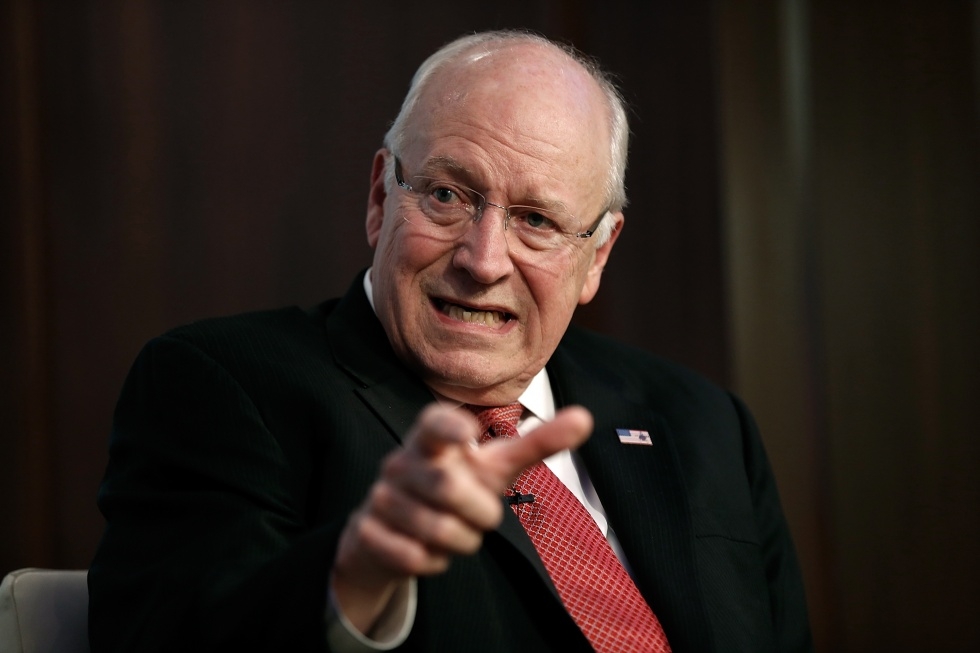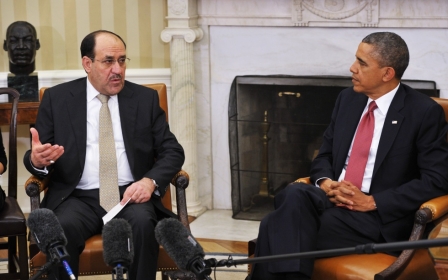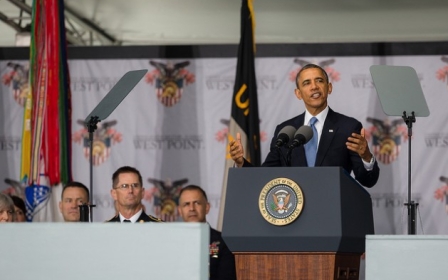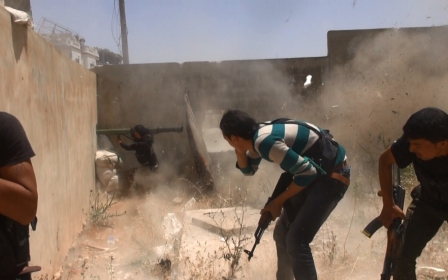Cheney condemns US foreign policy in Iraq

Former vice-president Dick Cheney, an architect of the 2003 invasion of Iraq, on Tuesday defended his choices at the time, and slammed the current US course as opening the door to insurgents.
Cheney spoke to PBS television as the first of up to 300 US military advisers began their mission in Baghdad on Tuesday to help the Iraqi army, and the Pentagon said the American troops were not taking on a combat role.
The primary task of the advisers was to evaluate the state of Iraqi forces and not to turn the tide against militants from the Islamic State of Iraq and the Levant (ISIL), which have swept across western and northern Iraq, the Pentagon's press secretary said.
Referring to an op-ed article he wrote with his daughter Liz Cheney, the former vice president and ex defense chief said: "We don't mean to be disrespectful to the president (Barack Obama), but I have got - and as did my co-author ... we feel very, very strongly that we're headed in the wrong direction.
"This administration is taking exactly the opposite direction from which we ought to be headed," Cheney stressed.
He believes Obama never meant to leave troops in Iraq - and that his decision to withdraw led to the current instability.
"The president did not want to have, I don't believe, any stay-behind force in Iraq. I don't think it was consistent with the campaign he'd run when he campaigned against our forces in Iraq and promised to bring them all out during the course of the campaign," Cheney said.
And the former vice president still defends the choices of the George W. Bush administration which he served in -- saying it did the right thing in 2003 -- though its intelligence (arguing Iraqi dictator Saddam Hussein had weapons of mass destruction, and ties to al-Qaeda) later was shown to have been flawed.
Asked what mistakes were made, Cheney said: "It was not a flawless war, but I've never seen one that was."
Cheney also recalled how Intelligence about Saddam's WMDs seemed so clear at the time saying that then CIA chief "George (Tenet) said, 'It's a slam dunk, Mr. President, slam dunk.'"
"I don't hesitate to defend what we did," Cheney said. "And with respect to whether or not we did the right thing going into Iraq, I believe it. I don't want to argue about it. Different people have different views."
Asked if ISIL's inroads were an intelligence failure of the United States, Cheney said: "I don't automatically assume our guys missed it. I just don't know.
"I think there's a real possibility that it didn't track with the narrative that we got Bin Laden, terrorism problems solved."
Declining neo-con influence
Analysts have noted the declining importance that neo-conservative voices such as Cheney’s have in the media and on the international stage.
Writing for the Inter Press Service, foreign policy analyst Jim Loeb said that a decrease in public support for military intervention in America had “clearly damaged the political standing and credibility of the hawks, especially those - such as Cheney, Bolton, former Undersecretary of Defense Paul Wolfowitz and Weekly Standard Editor Bill Kristol – who played such prominent roles in promoting the Iraq war and are now calling for renewed intervention, at least in the form of air strikes, if not re-introducing US combat forces.”
“Their diminished influence was made clear already nine months ago when they failed to rally lawmakers – even most Republicans – behind air strikes against military and other government targets in Syria after Obama accused Damascus of carrying out a chemical-weapons attack that killed hundreds of civilians,” he wrote for the news agency.
But professor of international affairs Stephen M. Walt has argued that neo-conservative voices are still being given an undue prominence in the US media.
“To the dismay of many commentators...neoconservative punditry is alive and well today,” he wrote in Foreign Policy.
“Casual viewers of CNN and other news channels are being treated to the vacuous analysis of Paul Wolfowitz, Dick Cheney, and Bill Kristol.”
He stated that “it seems to be having some impact, insofar as President Barack Obama appears to have bowed to pressure and dispatched 300 U.S. military advisors to help the incompetent and beleaguered Maliki government in Iraq.”
“One reason neoconservatism survives is that its members don't care how wrong they've been, or even about right and wrong itself. True to their Trotskyite and Straussian roots, neoconservatives have always been willing to play fast and loose with the truth in order to advance political goals.”
New MEE newsletter: Jerusalem Dispatch
Sign up to get the latest insights and analysis on Israel-Palestine, alongside Turkey Unpacked and other MEE newsletters
Middle East Eye delivers independent and unrivalled coverage and analysis of the Middle East, North Africa and beyond. To learn more about republishing this content and the associated fees, please fill out this form. More about MEE can be found here.




